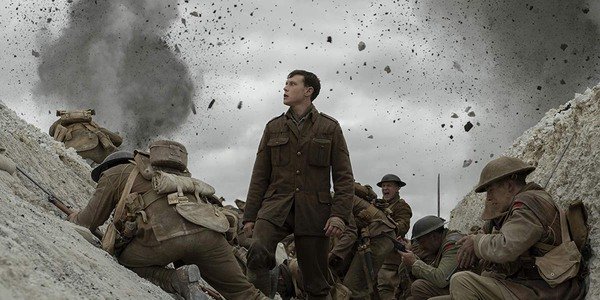If you’re a fan of gritty movies, then be sure to check out 1917 while it’s still in theaters. As my fellow history buffs know, World War I was an exceptionally brutal conflict of epic proportions, and this film does a fantastic job of portraying that reality. From a tactical perspective, the movie didn’t really miss a beat, although the faceless Germans, as in just about every other WWI film, were characteristically inaccurate with their M98s. The military realities depicted in 1917 moved beyond the battlefield: while scenes of chaotic gunfights and mortar shellings provided an honest look into the face of the conflict, 1917 managed to capture the thankless nature of life as a soldier. Unlike most war films, which seemingly always leave the audience feeling somewhat warm and fuzzy, as the hero eventually receives some sort of well-deserved recognition in one form or another, 1917 leaves even the casual viewer feeling hollow. I was stunned by the way in which the film managed to trivialize the unbelievably heroic actions of the protagonist. While it felt like the film was underselling the gravity of the hero’s actions, it seems like this choice was deliberately made in an effort to more accurately tell the story of Alfred Mendes, the director of the film’s (Sam Mendes) grandfather. In this way, 1917 does great justice to the genre and avoids the trappings of the fairy-tale war film.
1917, while maintaining a strong essence of realism, is also incredibly entertaining from a purely dramatic perspective. Many war films, in my opinion, foreshadow with disappointing ham-handedness, resulting in a relatively boring plotline for people who pay closer attention. 1917 almost completely avoids this issue, as the entire picture is excitingly unpredictable; the dizzying camerawork makes you feel only slightly less disoriented than the soldiers themselves while somehow managing to keep the central narrative clear. 1917 is one of the most unique films that I’ve seen in quite a while, as it delicately weaves scenes of high-octane action into a broader tapestry of depressed sensibilities. Again, if you’re a person who detests leaving the theater feeling ethically unsatisfied, then steer clear, but if you enjoy utterly intense emotional rollercoasters, then give 1917 a shot.
Lastly, I thought that the film, although it lasted 120 minutes, needed more time. After only about ten minutes, the main sequence of events began, leaving me desperate for more background information on the protagonist’s family and life away from war. Additionally, after the climax of the film, we’re given only about ten minutes of downtime before the credits, so again, an extra fifteen minutes of background footage could have significantly increased my emotional involvement. Overall, 1917 delivered a bit more than what I’d hoped for, even though my expectations for it were quite high.
8.5/10


